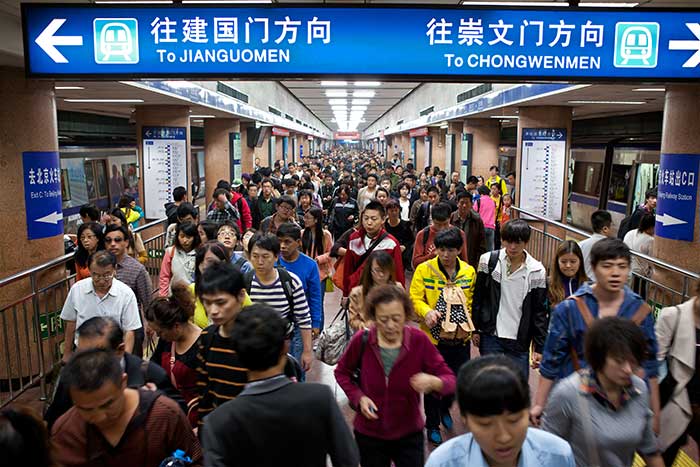That marks a 0.1 percentage point increase on its April prediction of 6.6% growth for the world’s second-largest economy, which had already been increased from the 6.5% forecast in January.
China’s official growth figures for the first three months of the year, at 6.9%, had beat expectations, perhaps somewhat explaining the IMF’s continued optimism.
However the fund’s deputy managing director David Lipton warned that the country must accelerate reforms in order to address “the risk that the current trajectory of the economy could eventually lead to a sharp adjustment”.
China is currently in the process of transitioning to a more sustainable growth model, founded on consumption. It had accepted this would entail an inevitable slowdown in terms of GDP expansion.
Still, China remains one of the fastest-growing major economies in the world – a situation maintained by significant economic stimulus, namely easy credit – and endeavours to meet strict growth targets.
Both the public and private sectors have built up substantial levels of debt, which have prompted various global institutions, including the IMF, the OECD, and other global financial watchdogs to warn against China’s credit binge, as well as China’s first ratings downgrade in over 25 years.
“As has widely been recognised, including in the government’s reform plans, deep reforms to transition from the current growth model that relies on credit-fed investment and debt [are required],” said Lipton.
“It is critical to start now while growth is strong and buffers sufficient to ease the transition.”
He noted that some progress has already been made to safeguard against financial sector risks, including supervisory and regulatory action, restructuring efforts to remove overcapacity from the economy and efforts to control the house price boom.
Frameworks around local government borrowing, which had also been a cause for concern, were also improving, he continued, and a “blueprint” for reforming central-local fiscal relations has been published.
Lipton called for increases in public spending in areas including health, pensions, education and welfare in order to boost consumption.
“Combined with making the tax system more progressive and greener, [this] would boost growth while reducing China’s high income inequality and pollution,” he added.
He also called for quicker and broader reform for state-owned enterprises, especially efforts to remove unproductive firms from the market, and a more sustainable policy mix that focuses “more on the quality and sustainability of growth and less on the quantitative targets”.














